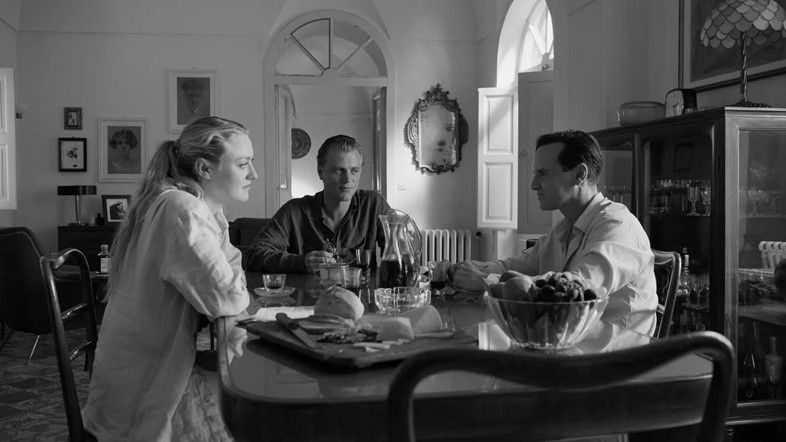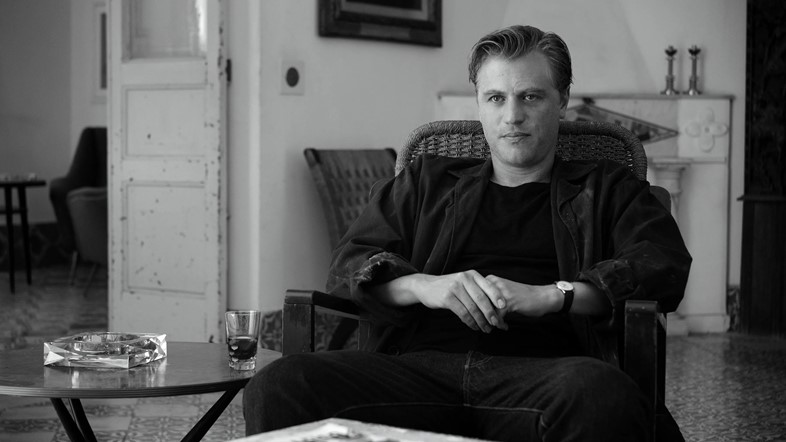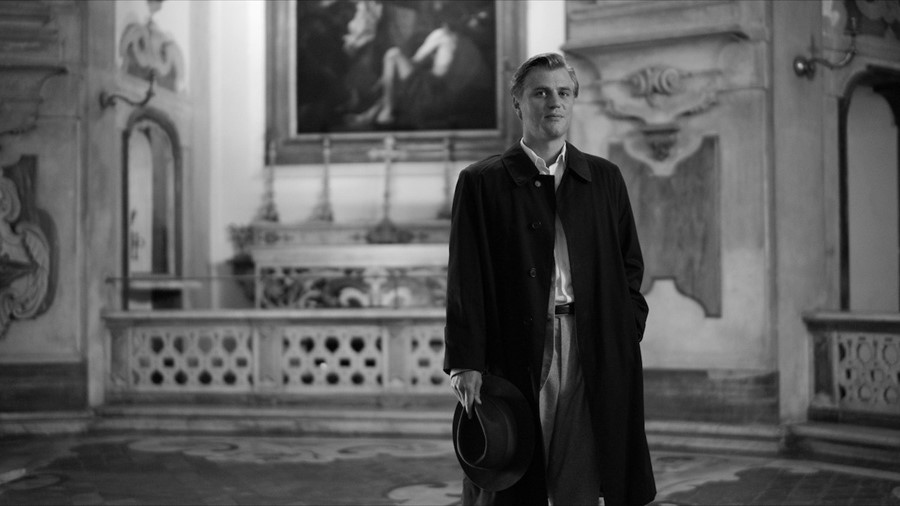As a new Netflix adaptation of The Talented Mr Ripley is released, Johnny Flynn talks about acting alongside Andrew Scott, and why their show is “doing something quite different” to the famous Jude Law-Matt Damon iteration
When Johnny Flynn pops up on Zoom, he is hunched in a child’s room. He smiles, and sheepishly shoves some crumpled laundry off-screen. “Excuse my son’s room,” he says, “all the other spaces in the house are occupied.” It’s only 9am, but it’s been a busy day already in the Flynn household. “I got home late last night after the closing night of our play, The Motive and the Cue on the West End, and woke up at 6am to blow up balloons for my son’s birthday.” Despite his copious accolades as a musician, theatre actor and film star, Flynn remains a shy and soft-spoken figure, eyes flitting up when considering a question, and often self-deprecating: “Oh, I had to audition for this role in Ripley. No idea why Steve [Zaillian, showrunner] chose me. It could’ve been anyone.”
Flynn is a multihyphenate, having started out on stage in Shakespeare plays before making a name for himself on screen in the likes of Beast, Lovesick, Emma and One Life. He is also an exceptional folk musician, providing the much-loved comedy Detectorists with its lyrical score and collaborating with nature writer and academic Robert Macfarlane on a pair of albums, Lost in the Cedar Wood and The Moon Also Rises. “I’ve admired his writing for a long time. We are also working together on a children’s book, a play and a graphic novel.” Flynn smiles – he likes to have several irons in the fire.
From the summer of 2021 to spring 2022, Flynn worked on a long, complex production of Ripley, an eight-part adaptation of Patricia Highsmith’s novel The Talented Mr Ripley for Netflix. It’s a stellar, noir-influenced take on the story boasting some heavyweight talent – Oscar-winning screenwriter Steven Zaillian, whose last foray into TV was the superb crime drama The Night Of, is the series’ creator, while Flynn joins Andrew Scott, fresh off his career-high turn in All of Us Strangers, in the cast. Highsmith’s novel was written in 1955, but the scammer narrative is as relevant as ever, possessing a certain salacious romance – think Anna Delvey’s exclusive NYFW show held under house arrest, Caroline Calloway’s lauded memoir Scammer, or eat-the-rich films like Triangle of Sadness and Emerald Fennel’s Saltburn. “Saltburn feels like it’s set in a world some of us recognise – of course, not in terms of the huge mansion – but you know what I mean,” says Flynn. “Whereas Ripley is a real period piece where we actually root for the scammer who is committing crimes. The fact that Patricia Highsmith achieves that empathy for Tom despite the terrible things he does is a phenomenal achievement.”
The Netflix adaptation casts Flynn as all-American golden boy Dickie Greenleaf – heir to a shipping factory tycoon in Manhattan – while Scott plays the titular Tom Ripley, who becomes increasingly obsessed with Dickie and his affluent lifestyle painting, drinking and whiling time away in a small Italian seaside town. And then there is the brooding Marge Sherwood (Dakota Fanning), Dickie’s girlfriend, whose lingering suspicion of Tom threatens his position in the villa.

None of the actors rewatched the Jude Law-Matt Damon film adaptation of the story, because, as Flynn explains, “we were doing something quite different, and it wouldn’t have been helpful to compare”. Where Anthony Minghella’s 1999 film is all scorching heat and bright skies, Zaillian’s black-and-white adaptation leans into something darker. The sea, so inviting in Minghella’s sumptuous telling of the story, becomes an obliterating force in Zaillian’s version, waves whirling and gurgling in rich monochrome. Flynn recalls, “When I first saw the show, I remember the intense feeling of embodying this character more than anything I’ve ever done.” Ripley’s episodic format affords the narrative more interiority, moments of tension expressed by its characters in lingering glances and fidgeting hands. “A clever thing that Steve does is create this sense of distrust,” Flynn says. “You start to doubt whether the looks that are happening between Dickie and Marge are real or if they are just in Tom’s head.”
What’s interesting is how rich kid Dickie performs a kind of aristocratic pomp as much as Tom – the industrial factory where his father works stands in stark contrast to Dickie’s villa by the sea. Is Dickie really so different from Tom? “Dickie grew up nouveau riche, so with that money he’s gone to Italy, fallen in love with the idea of the pained intellectual who knows everything about Caravaggio and tried to reinvent himself,” says Flynn. “Dickie is someone who is in denial about who he really is and it’s catching up with him.”
Dickie becomes Tom’s mirror – they recognise something in each other, something they desire. When Tom secretly puts on Dickie’s clothes and pretends to be him, it is both ominous and arousing – Tom wants to literally embody Dickie. How much closer can you get to another person than that? “We wanted to lean into this kind of yearning between them, which adds another layer to their relationship,” Flynn explains. “If Dickie did have romantic feelings towards Tom, that would be difficult for him because of his place in society. We almost see their two minds at work, where Dickie is thinking, ‘We all have these feelings but you’re not allowed to say it,’ while Tom seems to be thinking, ‘Why would you deny yourself something that would give you pleasure?’”

Flynn speaks effusively of working with the All of Us Strangers star, whose theatre work he particularly admires. They developed a close bond while filming, as they depended on each other in difficult moments being away from home during the Covid lockdowns. “When you’re with Andrew you almost don’t have to act, because you’re just watching him and he’s so ‘within’ the character that you get drawn into it too. It’s a very special experience.”
Still, Flynn underplays the detailed approach he takes to building his characters, listening to music in order to imagine the way that they move. For Dickie, he says, “it was something clashing … something tense and loose.” While filming, Flynn was listening to mid-century jazz and bebop, as he felt that “the music, which rose in parallel to the cubist art movement, reflects the rebellion and crisis that Dickie is experiencing. I was thinking about Dickie’s lostness, and this attempt to forget himself.”
Ripley is out on Netflix now.
